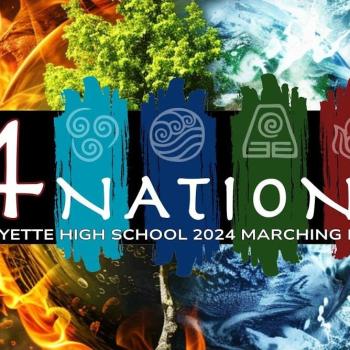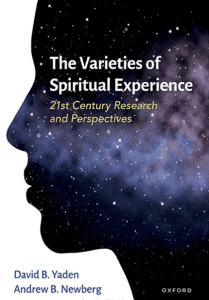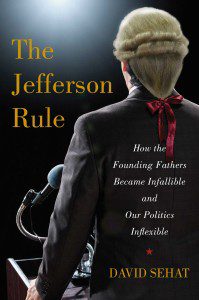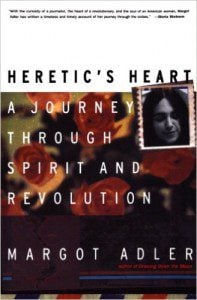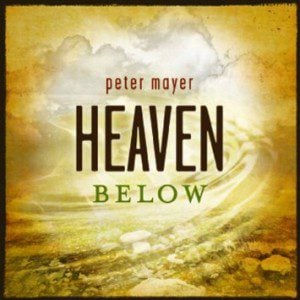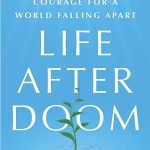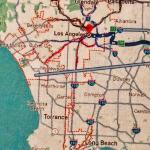Last week I posted my response to the question “Why Unitarianism?” This week, I will explore the related question, “Why Universalism?”
Comparing these two philosophically liberal religious traditions, the most famous quote comes from Thomas Appleton, who said, “The Universalists think that God is too good to damn them forever, the Unitarians think that they are too good to be damned forever” (Buehrens 228).
More constructively, the Rev. Forrest Church said, “In a sweeping answer to creeds that divide the human family, Unitarianism proclaims that we spring from a common source; Universalism, that we share a common destiny.”
Why Universalism? For me, the most important part of the Universalist half of the Unitarian
Universalist heritage is that it has evolved from a focus on universal salvation for all in a next world to a universal call to “Love the hell out of this world.” Today, with the rise of both modern science and religious freedom, it’s much more common than ever before to question the idea that some humans will be eternally punished in an afterlife for what could at most be a finite amount of “sin” during a lifetime in this world. But the theological ancestors of today’s UUs were born into a much different context.
In the the 1700s in North America, there was widespread anxiety about whether one’s self, family, and friends were destined for eternal torment in an afterlife (Howe 5). Most infamously, Jonathan Edwards preached a sermon in 1741 on “Sinners in the Hands of an Angry God.” But thanks in no small part to the Universalist tradition, we have come to see that the Calvinistic depiction a wrathful, vengeful, jealous God ultimately says much more about the intolerance of the people preaching those hellfire and brimstone sermons than it does about the divine. To adapt a quote from Voltaire, “If there is any truth in the teaching that ‘God created humankind in God’s own image,’ then humans wasted no time in returning the favor.” Indeed, those fire and brimstone sermons were much less about “Sinners in the hands of an angry God” and much more about “God in the hands of angry sinners.”
Into that context, John Murray, who came to be known as the “Father of American Universalism,” arrived in the North American colonies from England in 1770, six years before the American War for Independence. His message of universal salvation — that all people would eventually be reconciled to God and that no one would be doomed to torment for all eternity — was a bold, powerful, and life-changing message for many people accustomed to threats of damnation from religious leaders. And a major part of the appeal at that time was that he based his reasoning on interpreting the Bible. And although there were previous people who preached a similar Universalist themes, Murray’s had auspicious timing in that his message of religious freedom from the established order coincided with the American Revolutionary War’s movement for political freedom (5).
Murray preached, “Give the people, blanketed with a decaying and crumbling Calvinism, something of your new vision…. Give them, not hell, but hope and courage. Do not push them deeper into their theological despair, but preach the kindness and everlasting love of God” (9).
[Correction: For the background on quote above that is misattributed to Murray, see the fall 2012 UU World article “Who really said that?” by Peter Hughes”]
Fascinatingly, one of the roots of the contemporary UU practice of “Child Dedications” is that back in the late 1700s, Murray opposed baptisms — presumably for Universalist reasons: if there is no concern about hell and washing a baby clean of original sin, then a Child Dedication is a fully appropriate and sufficient celebration of the hope and joy found in each new life brought into a religious community (12).
As some readers will recall, a few years ago the evangelical Christian minister Rob Bell stirred up a lot of controversy and many headlines with his bestselling book Love Wins: A Book About Heaven, Hell, and the Fate of Every Person Who Ever Lived. I’m interested less in the content of that book, and more that the strong reaction the book triggered signals that — more than two hundred years after John Murray began preaching “give them not hell, but hope” on our shores — the larger culture is continuing to move toward the message of Universalism.
And although the stereotype of early Unitarian and Universalists was that the Unitarians tended to come from the elite, privileged upper-classes and the Universalists from the lower classes, to look at the life of John Murray, there are significant encounters with the “powers that be.” When controversy was stirred up about Murray’s service as a chaplain in George Washington’s Continental Army given Murray’s Universalist theology (which some viewed as an offensive heresy), General Washington himself “supported his appointment in the face of much criticism” (6).
At the same time, Murray’s first encounter with John and Abigail Adams did not go very well. In 1788, they were coincidentally on the same ship back to the U.S. from England, and Murray preached one Sunday to the passengers. Abigail Adams’ account was that Murray’s sermon was “a sort of familiar talking without any kind of dignity,” exposing her upper-class bias toward what she called “a discourse that would read well” (7). In 1790, a more social encounter with Vice-President and Mrs. Adams and President Washington went much better with Murray and his wife Judith bringing congratulations to the new President from the recent Universalist convention (13). Then in 1798, Murray
renewed his friends with John Adams, the new president, dining with him often and meeting the leaders of government. Adams flattered Murray by claiming that Murray had performed ‘a great feat — next to a miracle’ by enticing Vice President Thomas Jefferson to come to church to hear him preach. (18, 20)
We are often more aware of the ways that Unitarians were close to the seats of power, but there were well-known and prominent Universalists as well. (I should also note that John Murray’s wife Judith Sergeant Murray was a significant early advocate of women’s rights, and I plan a full post on her at a future date.)
And although there is much more to say about John Murray, for now, allow me to move on to Hosea Ballou, the leader of the next generation of Universalists. My favorite story about him is of a theologically conservative skeptic interrogating Ballou about the ways that Universalism could lead to the moral corruption of society. He said:
“Brother Ballou, if I were a Universalist and feared not the fires of hell, I could hit you over the head, steal your horse and saddle, and ride away, and I’d still go to heaven.” Hosea Ballou looked over at him and said, “If you were a Universalist, the idea would never occur to you.”
Universalism, of course, was based on an reorientation from a narcissistic focus on one’s self to an ever-expanding circle of concern for all — what Jesus called (quoting Leviticus 19:18!) “loving your neighbor as yourself.” Humanists began making a similar point a century later that one can be good with or without God. Or as Cyrus Bartol quipped in his 1872 book Radical Problems, “I spell my God with two o’s and my devil without a d.”
Along these lines, it is fascinating to see that unlike Murray who essentially liberalized Calvinism such that everyone became part of the “elect,” Ballou went much farther theologically. If you remember from my post last week, before the word Unitarian became common, the theological forbears of today’s UUs were often known as Arian Christians or Socinian Christians, depending on whether they thought Jesus was a little less than God (the Arians) or fully human (the Socinians). And although Ballou was a Universalist (not a Unitarian), he began teaching an Arian Christology (18), which is one of the many movements that helped pave the way more than a century later to the merger of Unitarianism and Universalism in 1961.
Ballou also made a significant shift in his understanding of Atonement. Murray, like many early Universalists essentially expanded a Calvinist perspective from a Limited Atonement (of Jesus sacrificing himself on the cross for only a small elect) to Jesus’ death being a universal sacrifice for all people, times, and places. But this still often depicts God (“the Father”) as requiring the horrific death of Jesus (“the Son”), which — if you take a step back — looks a lot like “divine child abuse.” In contrast, Ballou began to teach that “it is humanity that needs to be reconciled to God, not the other way around” (18).
There is again so much more to say about Universalist history — indeed, the two-volume history of the Universalist Church in America (1770-1970) weighs in at 1,800 pages! — but for now allow me to offer only a few additional highlights. There was significant progress in women’s ordination in the Universalist tradition in the 19th-century (what’s called “breaking the stained-glass ceiling) such as that, by the time women gain the right to vote in this county in 1920, “88 women had been ordained as Universalist ministers.” At that time, the Unitarians had ordained 42 women. These numbers, though relatively small, were pathbreaking because “it would be another half century before the ordination of women became common in American church life” (57).
In 1889, Joseph Jordan became the first African-American ordained as a Universalist minister (75). And it’s no accident that Sojourner Truth’s “Ain’t I a Woman” speech was given in at a women’s rights convention held at a Universalist church (Buehrens 72). The Universalist message of universal love for all people led them to be early advocates for many social justice causes from abolition of slavery, to women’s rights, to prison reform (Howe 58). Along these lines, another famous Universalist was Clara Barton, who became the first president of the American Red Cross (Buehrens 73-74).
Moving toward my conclusion, allow me to briefly address further the trajectory the Universalists began to take that helped set the stage for their 1961 merger with the Unitarians. The most important influence was the increasingly vocal call that Universalists must fully live into their name. Around 1896, a spokesperson for the Universalists proclaimed,
You Universalists have squatted on the biggest word in the English language. Now the world is beginning to want that big word, and you Universalists must either improve the property or move off the premises. (Howe 80)
Similarly, in 1943, the General Superintendent of the Universalists said to the annual General Assembly:
Universalism cannot be limited either to Protestantism or to Christianity, not without denying its very name. Ours is a world fellowship, not just a Christian sect. For so long as Universalism is universalism and not partialism, the fellowship bearing its name must succeed in making it unmistakably clear that all are welcome: theist and humanist, unitarian and trinitarian, colored and color-less. A circumscribed Universalism in unthinkable. (109)
So, “Why Universalism?” Well, whereas Unitarianism has sometimes lead down a road to extreme Emersonian individualism (of caring mostly about one’s own isolated spirituality), Universalism calls us out of ourselves and into the world to love the hell out of this world — into a world filled with far too much hell that desperately needs the life-saving message that we are part of one another, part one human family.
And in the coming days, I invite you to allow the historic spirit of Universalist’s thought to ring in your ear and potentially change the way you might otherwise interact with everyone you will encounter. May we give everyone we meet “not hell, but hope and courage. Do not push them deeper into their despair, but give them the kindness and love.” Together, may we individually and collectively do our part to love the hell out of the world.
Sources
Charles Howe, The Larger Faith: A Short History of American Universalism
John Buehrens, Universalists and Unitarians in America: A People’s History
The Rev. Dr. Carl Gregg is a trained spiritual director, a D.Min. graduate of San Francisco Theological Seminary, and the minister of the Unitarian Universalist Congregation of Frederick, Maryland. Follow him on Facebook (facebook.com/carlgregg) and Twitter (@carlgregg).
Learn more about Unitarian Universalism:
http://www.uua.org/beliefs/principles





